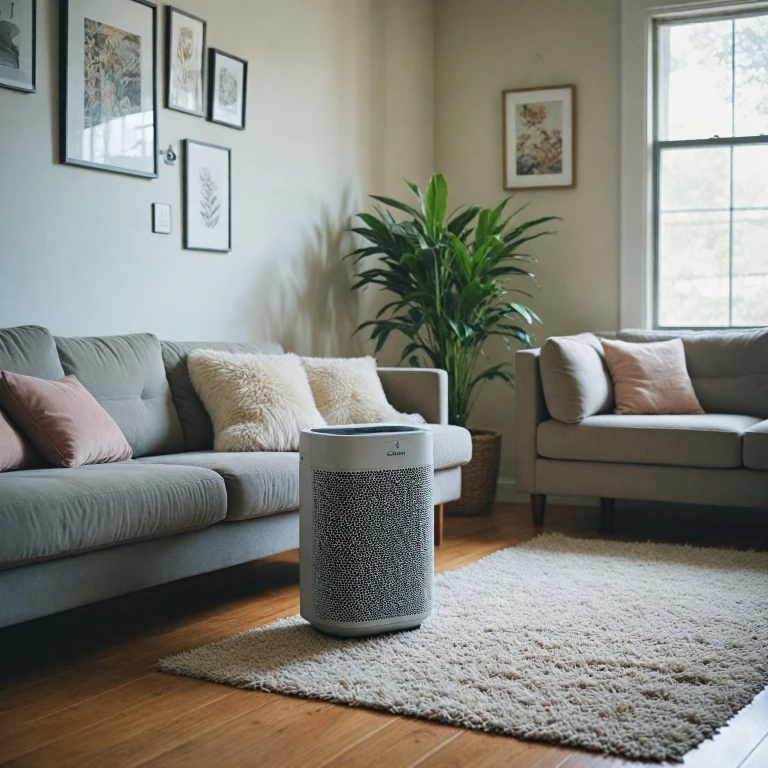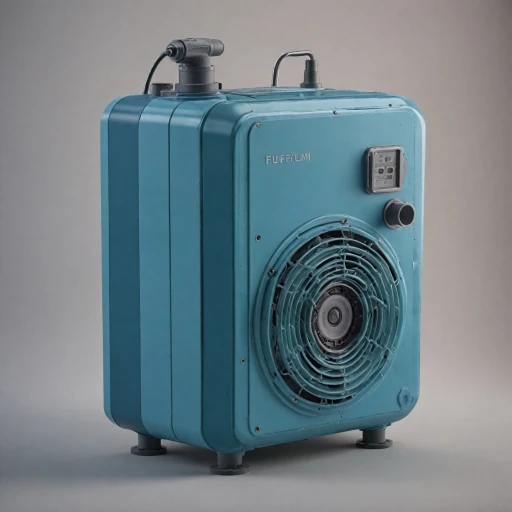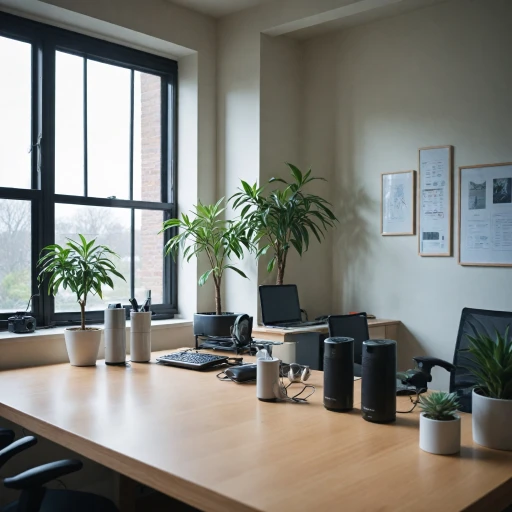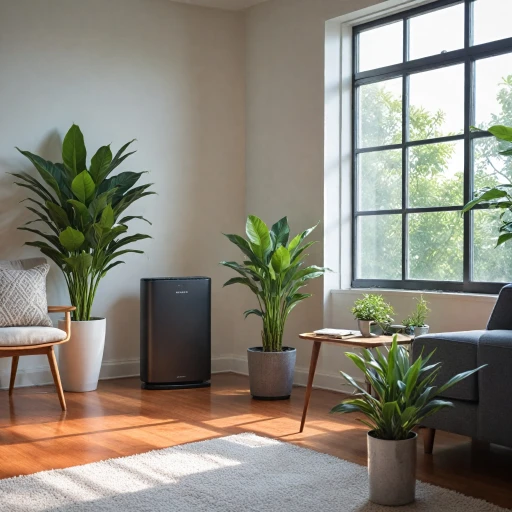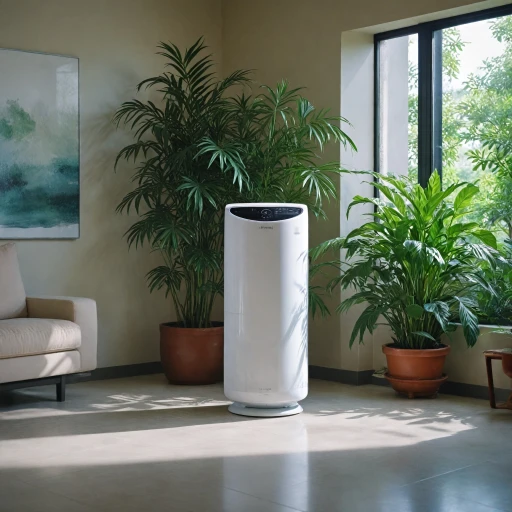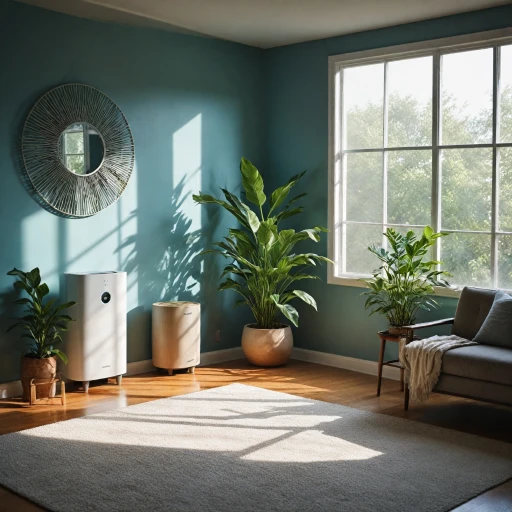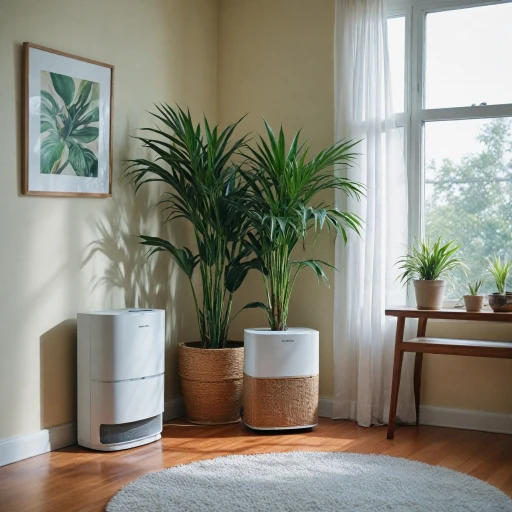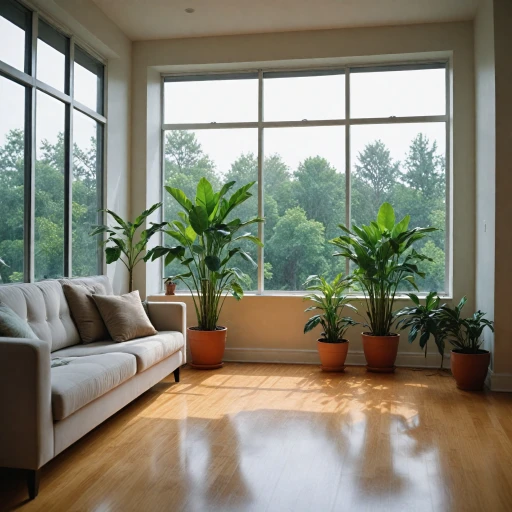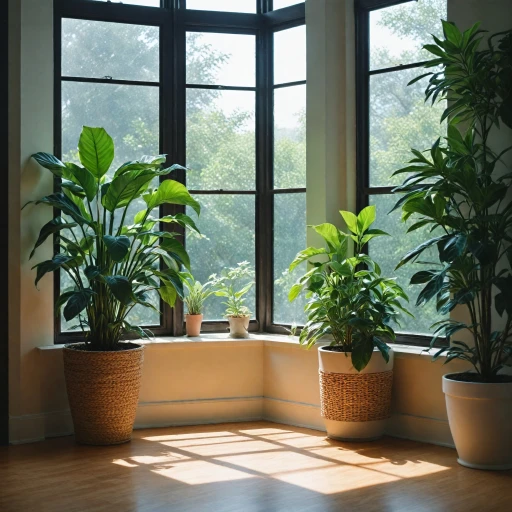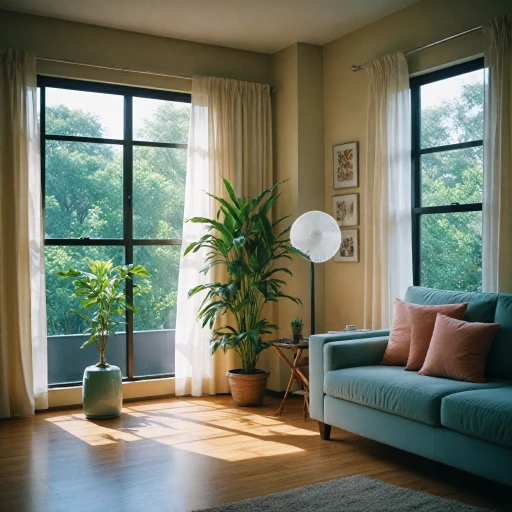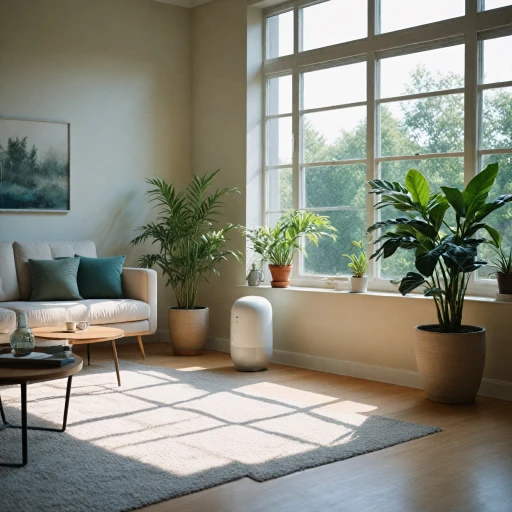Understanding Air Purifiers: How Do They Work?
How Air Purifiers Bring Freshness to Your Home
Air purifiers aren't just another gadget; they're becoming a staple in modern households for cleaner and fresher indoor air. But what's the secret behind these machines? Let's explore how they work to help you breathe easy at home. Forget about complicated technical explanations—think of air purifiers as the unsung heroes working silently in your house. They're like your personal vacuum for the odors you never see, but can definitely feel. Using various filters, these devices trap dust, pollen, and mold that float in your indoor space. Why is this important? Because it directly impacts your indoor air quality, making your residence a haven from allergens and unwanted particles.Demystifying the Air Filtration Process
At the heart of an air purifier lies its filtering system. One of the best out there is the HEPA filter, renowned for capturing tiny particles down to 0.3 microns—think dust, pollen, and even some bacteria. And if you're worried about odorous invaders, many models come with activated charcoal filters. These bad boys absorb nasty smells and chemical fumes, giving a fresh touch to your living room. For those fussing over HVAC systems, some air purifiers work hand-in-hand with your home's heating and air conditioning. They help filter the air circulating through your house, purging away irritants that could spark allergies or asthma. Maybe you want to use it alongside your HVAC system—good news, there's a setup for every house! Want to dive into every technical nitty-gritty? Read this guide for a deep dive on how air purifiers work. Air purifiers aren't a one-size-fits-all deal. They come in a variety of styles, catering to different room sizes and specific needs, from reducing dust to improving air quality for those with sensitive allergies. And while some might worry about wasting money, a good air purifier is an investment in your health. Whether you have pets, suffer from seasonal allergens, or just want the best air in your personal haven, air purifiers can be the answer to achieving consistently clean air. It's about making sure every breath in your house feels as fresh as it should be.Health Benefits: Breathing Easier with Air Purifiers
Breathe Easy: Air Purifiers for Better Health
Living and breathing in a house can sometimes feel like a struggle, particularly if you're sensitive to dust or allergens like pollen and mold. Enter the promise of an air purifier — a beacon of clean air. These devices often feature advanced filter systems, including HEPA filters, which stand ready to tackle those invisible particles that irritate your lungs. Many folks dealing with allergies or asthma find relief with a trusty purifier. When an air purifier runs in your home, it can be like your personal shield, combating various indoor air pollutants. Dust and pollen, the silent culprits, have a harder time sticking around when there's a purifier humming along.Benefits Beyond Allergy Relief
But wait, there's more to air purifiers than just allergy relief. Odors from cooking, pets, or even outdoor smoke can linger long after the source is gone. Place an air purifier in your living space, and its charcoal filters will work to trap and reduce these pesky smells, leading to a fresher home ambiance. And let's not overlook the mental calmness that comes with breathing cleaner air. Knowing that you're doing something positive for your respiratory health can contribute to an overall sense of well-being and maybe even add a skip to your step. For a more in-depth look, check out this comprehensive guide on air purifiers, which explores how these devices can transform the air quality in your home. Feel free to consult professionals or those who've already taken the plunge into air purification; their insights could help illuminate your decision to invest in an air purifier that meets your needs. From HEPA to charcoal filters, there’s a variety that makes these purifiers not just good, but great additions to any residence eager to breathe clean air.Evaluating the Costs: Initial Investment and Maintenance
The Financial Aspect of Purifiers: What to Consider
When you're thinking of making your air cleaner at home, using an air purifier might sound like a good idea. But before you jump in, it's wise to consider your wallet as well. Let's break it down into what you'll need to spend initially and on a regular basis. First off, there's the initial purchase cost. Air purifiers can range from under $100 to well over $1,000. The price tends to vary based on features, size, and brand reputation. Opting for a purifier with HEPA filters might land on the pricier side, but it's often considered the best air purifier for catching dust, pollen, and allergens. After the upfront cost, prepare for the ongoing maintenance expenses:- Filter Replacements: Most purifiers come with filters that need to be changed regularly. HEPA filters, which are top-notch for indoor air quality, might need a switch every 6 to 12 months based on usage and the air quality outdoors. Some purifiers also use charcoal filters for odors, which may have a different replacement schedule.
- Electricity Usage: While purifiers don't guzzle energy like your heating air conditioning system, they do add to your bill. Consider the air purifier's energy star rating if you're keen on energy efficiency.
- Maintenance and Repairs: Occasionally, your purifier might need extra love. Whether it's a minor fix or part replacement, this is a potential cost to factor in.
Effectiveness: Do Air Purifiers Really Clean the Air?
How Effective Are Air Purifiers in Improving Air Quality?
When it comes to air purifiers, many people wonder if these devices really live up to their promises of delivering cleaner air. The short answer? Yes, they can be quite effective, but it depends on a few factors.
First, consider the type of filter used in the purifier. High-Efficiency Particulate Air (HEPA) filters are known for their ability to trap tiny particles, including dust, pollen, and mold spores. If you're dealing with allergies or asthma, a purifier with a HEPA filter can be a game-changer, helping to reduce symptoms by cleaning the air in your home.
Choosing the Right Purifier for Your Home
Not all air purifiers are created equal. Some are designed to tackle specific issues, like odors or smoke, while others focus on allergens. For odors, a purifier with a charcoal filter can be a good choice. Charcoal filters are great at absorbing smells, making them ideal for homes with pets or smokers.
It's also important to consider the size of the room. A small purifier won't be effective in a large living room, just like a massive unit might be overkill for a tiny bedroom. Check the purifier's specifications to ensure it's suitable for the space you intend to use it in.
Integrating Air Purifiers with Your HVAC System
Some homeowners opt to integrate air purifiers with their HVAC systems. This can be a smart move, as it allows for whole-house air purification. However, it's crucial to ensure compatibility and proper installation to avoid any issues with your heating and cooling systems. For more information on how this integration works, you might find this guide helpful.
Are Air Purifiers a Waste of Money?
Investing in an air purifier is not a waste of money if you choose wisely. Look for models with good reviews and proven effectiveness. While some might argue that opening a window could do the trick, air purifiers offer a level of filtration that natural ventilation can't match, especially in areas with high pollution or during allergy season.
Remember, maintaining your purifier is key to its effectiveness. Regularly replacing filters and cleaning the unit ensures it continues to perform well. While there's an initial cost, the long-term benefits of improved indoor air quality can outweigh the expense.
Environmental Impact: Are Air Purifiers Eco-Friendly?
Considering the Environmental Footprint of Air Purifiers
When discussing air purifiers, it's only natural to think about their impact beyond just the confines of our living spaces. Since we're all becoming more environmentally conscious, understanding the eco-friendly aspect of these devices is something on many people's minds. The use of air purifiers indeed comes with some concerns about energy consumption. Most models run on electricity, and having an air purifier operating 24/7 can spike your house's energy usage. But don't lose heart just yet. Many contemporary air purifiers are integrating energy-efficient designs that help mitigate this concern. Seeking out models with Energy Star certifications can be a wise move, as they adhere to standards that support reduced energy consumption. On another note, the heart of any air purifier is its filter system. The widely known HEPA filters excel at trapping dust and pollen, even mold spores, ensuring your indoor air remains top-notch. But these filters need to be changed regularly, generating waste over time. To counteract this, some brands offer reusable or washable filters, which can be a beneficial alternative for reducing the environmental impact while still maintaining good air quality indoors. Additionally, when we think about the materials used in creating purifiers and their lifespan, opting for models built with sustainable or recyclable materials can make a positive difference. The trend towards sustainable practices is a glimmer of hope as more companies strive to blend environmental responsibility with product functionality. However, it's essential to recognize the balance between indoor air health benefits and the eco-footprint. With proper maintenance and wise selections, air purifiers can aid in improving your life indoors without much guilt about their impact outside. In the end, whether it’s filtering dust or combating indoor air pollution, the benefits to personal health and energy efficiency need to weigh against the environmental costs. By choosing the right purification system, you can breathe easy knowing you're doing your best for both your household and the planet.Making the Decision: Are Air Purifiers Right for You?
Is an Air Purifier a Good Fit for Your Home?
Making the choice to buy an air purifier isn't always straightforward. Let's look at some scenarios that might help you decide if one is right for your residence.
If you often find yourself battling indoor air pollutants like dust, pollen, or mold, an air purifier can be a game changer. Devices with HEPA filters do wonders in capturing these pesky particles, potentially reducing the symptoms associated with allergies and asthma. Furthermore, if you're consistently bothered by odors or smoke, those purifiers equipped with charcoal filters can help absorb such unwelcome smells.
Considering Your HVAC System and Space
The type of HVAC system in your house can influence your decision. Many families think, "Do I need an air purifier if I have an HVAC system already?" While HVAC systems are great for heating and cooling, they aren't particularly crafted to filter out finer particles or odors, which is where a dedicated air purifier thrives.
Think about the size of your space too. If you've got large open rooms or multiple small spaces with specific air quality needs, you might require more than one unit. Also, homes that have consistent airflow issues might find relief in investing in purifiers.
Weighing Costs and Benefits
Concerned about money? It's crucial to remember both the initial investment and ongoing maintenance costs, like replacing filters. We touched on these earlier, but think about whether the potential health benefits and peace of mind are worth the expense. With advances in technology, some of the best air purifiers are more affordable and accessible than ever.
Take stock of your current indoor air quality. Do common pollutants affect your comfort, or is a purifier an expense you can skip? Personal experiences often guide the best purchase decisions.
Eco-Friendly or Waste?
Concerned about the environment? In previous discussions, we highlighted that not all purifiers are created equal in terms of their environmental impact. Opting for energy-efficient models or those utilizing ozone air technology can align your purchase with eco-friendly values.
Consider too if you have made recent improvements to air clean in your home like upgrading insulation or improving cross-ventilation, which might reduce the need for frequent use of an additional purifier.
Personal Decision
Finally, this choice is yours to make based on personal preference and specific needs. We have shared comprehensive insights on purifiers, from how they work to considerations on costs and benefits. Whether your house demands a purer air system, or you're seeking to improve overall quality, the perfect air purifier can really make a good difference.
